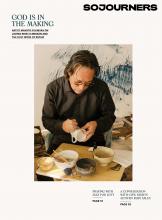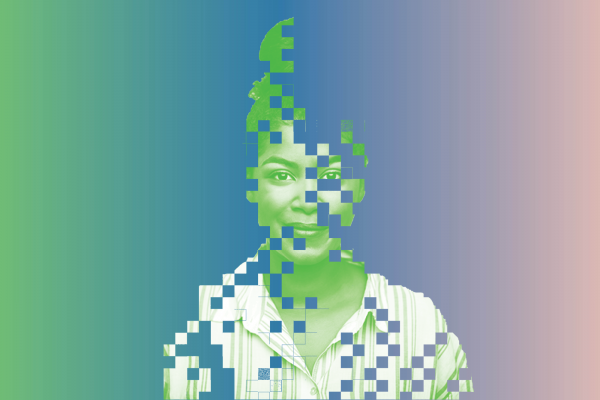IF ASKED “What era would you time travel to if you could?” many young Black and brown and Indigenous people would answer in a flash, “None of them.” Why? We’re too aware of the past and what it means for us today—we tweet about the results of American slavery and can break news of the latest injustice to emerge from centuries-long hatred of nonwhite skin faster than MSNBC. We feel the negative effects of history enough each day to not want to go back there.
But maybe we should. If all we see of ourselves on TV and social media is us sick, oppressed, or dead, what other understanding of ourselves do we miss? How can we remember that we are greater than the damage done—that our history holds more than that and so might our present?
Ruby Sales, founder and director of the SpiritHouse Project, helps young people invested in faith and social justice see themselves through the lens of their divine wealth and boundless potential rather than through eyes dimmed by media and versions of history shaped by white supremacy. Sales, who by age 17 was a Student Nonviolent Coordination Committee member registering people to vote in her home state of Alabama, has a Master of Divinity degree from the Episcopal Divinity School and is a preacher, speaker, and intergenerational mentor on racial, economic, and social justice. I spoke with her in December by phone. —Da’Shawn Mosley
Da’Shawn Mosley: I watched a YouTube video of you speaking in 2015 at St. Albans Episcopal Church in D.C. and was struck by what you said about today’s youth: that the most recent generations have incredible insight but haven’t lived enough to have hindsight.
Ruby Sales: Now that I’m working with young folks in my fellowship program and have had some time to weigh how things have changed from the ’90s to the 2000s, I think young people lack insight also. When you have been raised in a technological age, when history is no longer lived experience but is created on social media and reproduced through technology, I think that long-term memory is affected, as well as the ability to empathize and connect with human suffering. There is a difference between being able to theorize about human suffering and being able to feel it. All of these are challenges faced by generations raised in a technocracy—the decimation of history, of who we are as a people.
Read the Full Article

